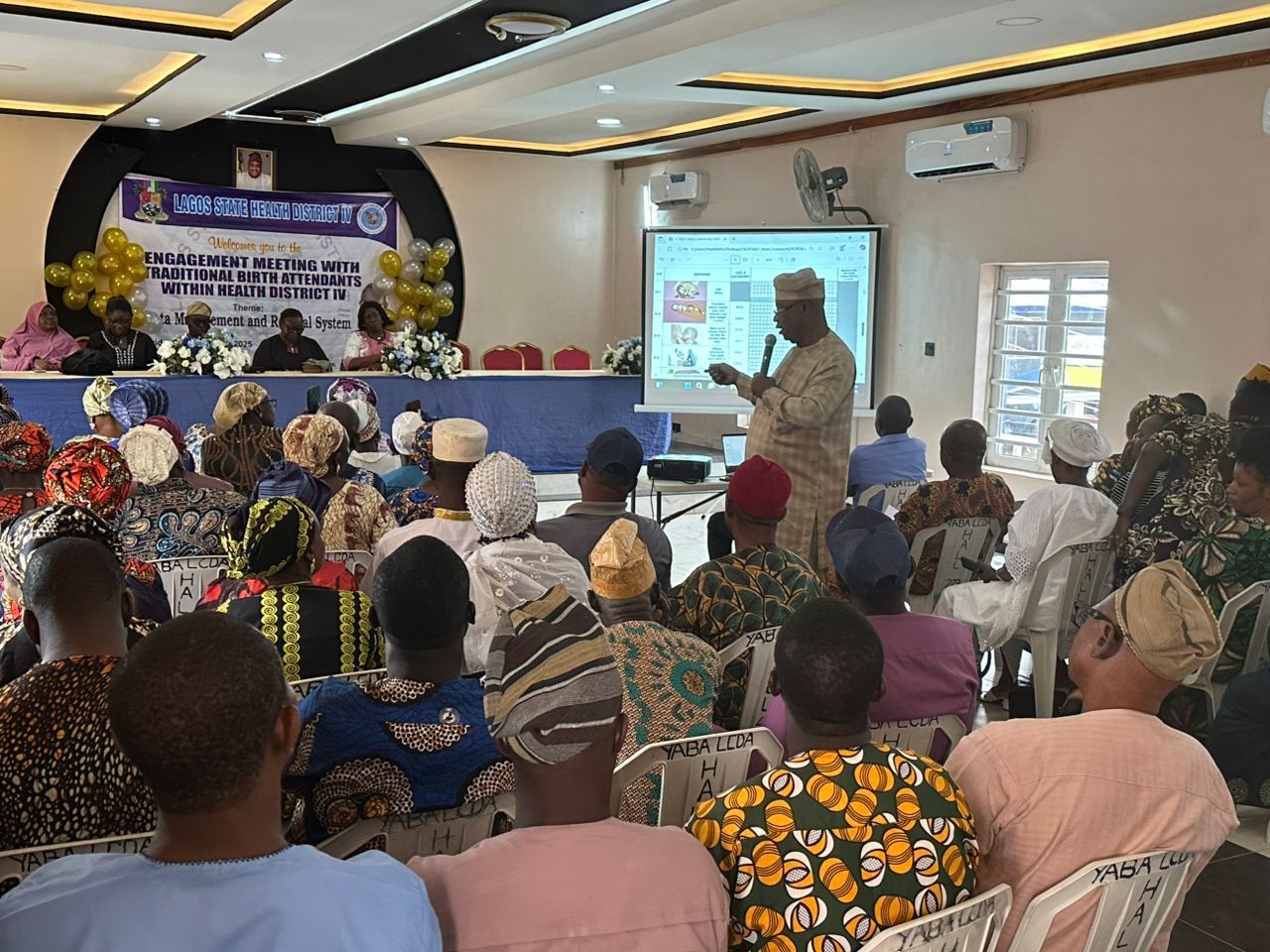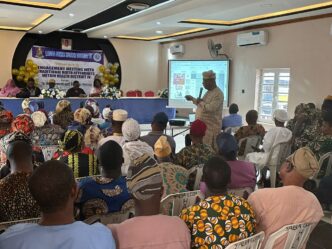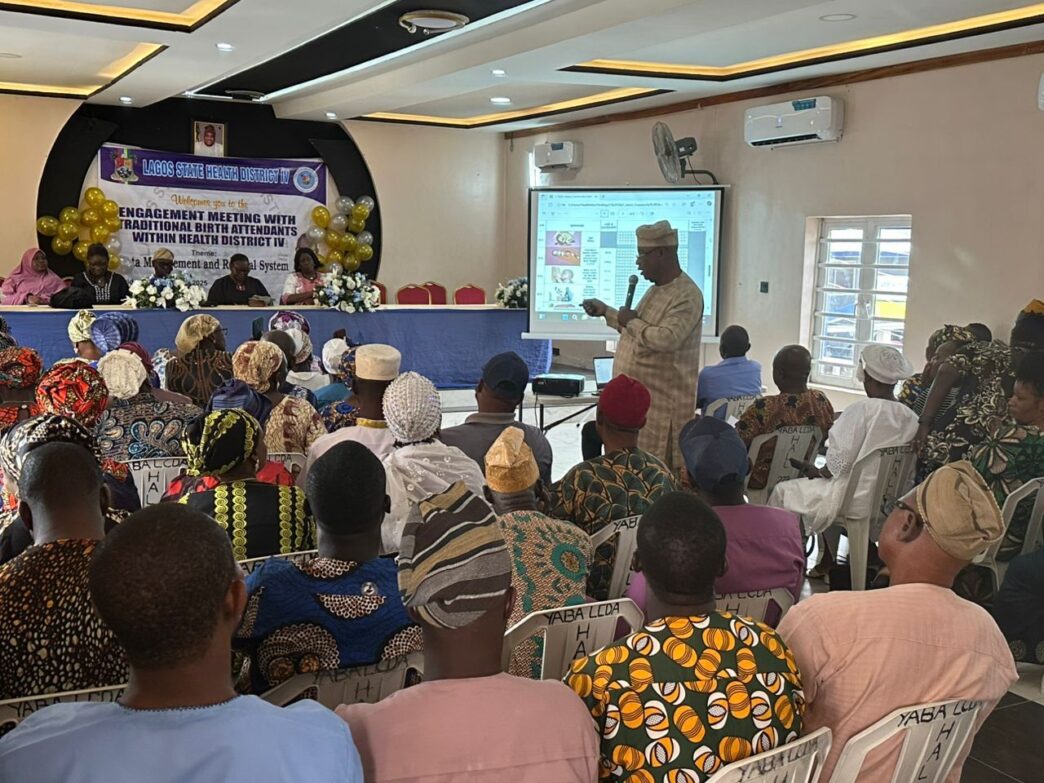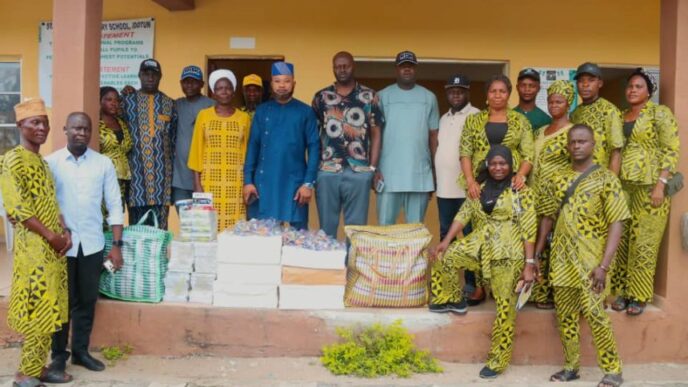The Lagos State Health District IV has organized a capacity-building session for Traditional Birth Attendants (TBAs) on effective data management and referral systems.
EpeInsights reports that the Permanent Secretary of Health District IV, Dr. Abimbola Bowale, emphasized the critical role traditional birth attendants play in community healthcare and maternal safety.
Dr. Bowale urged the attendants to focus on enhancing safety through continuous training particularly in recognizing danger signs during pregnancy and childbirth and to make timely referrals to skilled healthcare providers when emergencies arise.
“Traditional birth attendants should not only assist during childbirth but also provide culturally sensitive, emotional, and physical support during prenatal and postpartum care,” he said.
Also speaking, the Director of Medical Services and Disease Control, Dr. Oludolapo Sotunde, highlighted the importance of collaboration between traditional and formal healthcare systems.
He noted that TBAs possess strong community ties that can help bridge the gap between women and the formal health sector, fostering greater trust and utilization of healthcare services.
“Traditional birth attendants should formalize their roles as part of the referral system to ensure that pregnant women access health facilities promptly when complications arise,” Dr. Sotunde added.
“Integration with the formal health system is essential to improving community health outcomes.”
Delivering a lecture at the session, the Guest Speaker, Mr. Babatunde Okelarin, described a professional birth attendant as someone who assists mothers during childbirth and has gained skills through apprenticeship under certified and state-recognized TBAs.
He explained that, in Lagos State, only those trained and certified by the Lagos State Traditional Medicine Board are permitted to operate as professional traditional birth attendants.
Okelarin further discussed key topics such as the structure of the Lagos and national health systems, the use of data tools and tally sheets, client referral forms, monitoring of community-based health workers, recognition of danger signs during pregnancy, and appropriate referral indications.
The training underscored the State Government’s commitment to strengthening the role of traditional birth attendants within the broader healthcare framework, thereby improving maternal and newborn health outcomes across communities within District IV.














